Business community pins hopes on PM’s actions
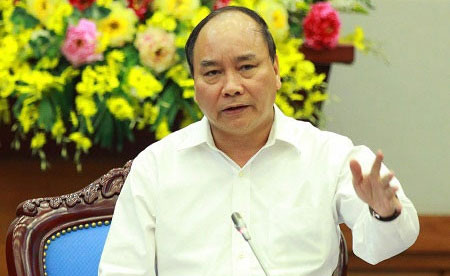 |
| Prime Minister Nguyen Xuan Phuc - photo VGP |
Representatives of foreign-invested companies and foreign business associations talk about the challenges they’re facing when doing business in the country and the proposals they have for the government.
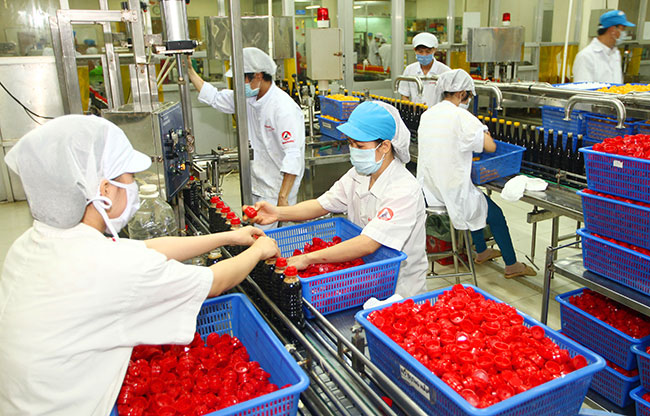 illustration photo |
Yeon In Jung – CEO and general director of Doosan Heavy Industries Vietnam
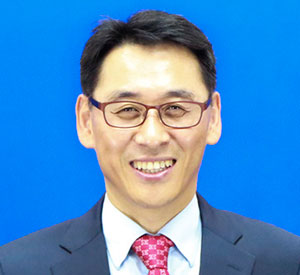 |
Prime Minister, thank you for arranging this meeting, inviting Doosan Vina and allowing us to ask a question. Our question is in regard to education and the plans to advance the skill levels needed to foster the growth of Vietnam’s domestic industrial sector.
Vietnam today has many fine universities and technical institutes, but the world of higher education never stands still; it is dynamic and ever evolving. I’ve recently seen announcements in the media regarding commitments to improve the quality of higher education and we certainly applaud that. The news mentioned that the Vietnamese universities of the future would offer curriculum and education that is more in line with Western schools.
Our interest specifically relates to engineers in the mechanical field and we have a two part question. First is there an opportunity for industry and business to work together with the Ministry of Education and Training on the evolution of education so that the skills taught will be compatible with the needs of industry and if so how can that be accomplished?
Second how will higher education more precisely prepare the next generation of engineering graduates so that they are better able to compete with engineers and companies from other countries?
Michael Behrens – Chairman of EuroCham
 |
A new government is always an excellent opportunity for recharging a country in every aspect, especially in economic terms. EuroCham congratulates the new Vietnamese government as well as the new PM. The PM’s meeting with enterprises definitely indicates a strong willingness for dialogue with the business community.
As new chairman of EuroCham, we are the voice of our more than 900 members. Europe represented the third largest foreign investor to Vietnam in 2015. In 2016, the new goal for EuroCham is concentrating on implementation of the new EU-Vietnam Free Trade Agreement. This will open a new “wave” of euro-invests and contribute to a sustainable economy.
We will strengthen the ties with all stakeholders. However, we need these stakeholders to be involved in a proper roadmap, with milestones, to implement in time and in good faith.
The successful trade agreement between the EU and Vietnam promises to paint a positive picture for the future. Nevertheless, some challenges remain to improve Vietnam’s competitiveness, especially at a time when neighboring countries will also challenge this market, especially if Vietnam wants to see itself as a gateway to Southeast Asia.
EuroCham has always supported efforts to improve Vietnam’s business climate and enhance Vietnam’s competitiveness. Our annual Whitebook, put together by our more than a dozen sector committees, offers suggestions on how to do this. EuroCham would like to further this collaborative exchange.
We will continue organising special dialogues with government officials, national and local, or meeting with ministries in order to follow up on the issues addressed in our new Whitebook, for the sake not only of the business community but also the Vietnamese and European people.
Marko Walde - Chief representative of the German Industry and Commerce in Vietnam
 |
First, we hope the Vietnamese government would help Vietnamese companies increase their capacity so that they can compete with companies from other countries as Vietnam joins in the ASEAN Economic Community, the Trans-Pacific Partnership and other free trade agreements.
Second, the government should build a modern and practical vocational training system that meets the demands of companies in order to create a sustainable advantage to attract investors to Vietnam.
Last but not least, we hope that the government facilitates the cooperation of Vietnamese companies with foreign companies. We hope the government would approve and support the establishment of the bilateral German Vietnamese Chamber of Commerce in Vietnam. The chamber will help Vietnamese companies cooperate effectively with German companies in Vietnam as well as German companies in Germany. It will also help Vietnamese companies increase their capacity and access new technology and vocational training opportunities for their workers.
John Tang - Director of the Taiwan Trade Centre (TAITRA) office in Ho Chi Minh City
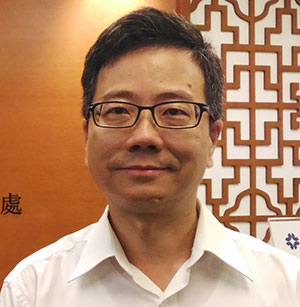 |
The Vietnam government saves no effort in improving the investment environment, such as free trade agreements with major trade partners, which benefits all Taiwanese investors a lot. Many Taiwanese investors are gratified to have made the right decision to invest in Vietnam instead of China 20 years ago. You may see the point by looking at China's sluggish GDP growth and declining export.
However, many investors are concerned that Vietnam government might be hasty in raising basic salary and placing restrictions on labour intensive and alleged pollution industries recently, which many believe that are the causes of China's slowing down foreign direct investment and economy in recent years.
Unlike others, many Taiwanese investors consider Vietnam their homeland because of similar culture. We are willing to work with the government to achieve sustainable development and look after the well-being of Vietnamese people.
Yasuzumi Hirotaka - Chief representative of the Japan External Trade Organization (JETRO)
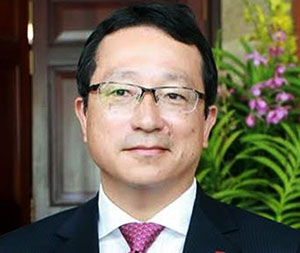 |
“Implementation of solutions” is more important than “reform announcement”. From companies’ point of view, we would like to see the problems are solved. The continuation of following up meetings are the key point.
We are interested in the issues:
(1) Elimination of Article 206 of the amended new Criminal Law
(2) People in charge of governmental services such as tax and custom authorities, which are the weakest point of Vietnamese administration system. They should be re-educated in terms of knowledge and ethic, while provincial leaders must manage thoroughly these terminal organisations to boost transparency and reduce the instability in the implementation of systems as well as simplifying procedures.
(3) In the context of fiercer competition in business environment by economic partnership as Trans-Pacific Partnership and other free trade agrees, government's supports to small and medium-sized enterprises must be strengthened fundamentally, such as low interest rate loans, human resources development, training for managers, research and development and buying used machineries.
Lawyer Oliver Massmann - General director of Duane Morris Vietnam LLC
 |
We highly appreciate the government’s efforts to integrate into the world’s economy, in particular it is worth mentioning the recent conclusion of important trade pacts such as the EU- Vietnam Free Trade Agreement, the Trans-Pacific Partnership, the Vietnam –Korea Free Trade Agreement.
Foreign business community is expecting from the Vietnamese government to stay course on its path of international integration and implementation of its international commitments. Foreign investment is an effective channel to develop the country, thus the government needs to adopt preferential treatment for foreign investors in terms of policies, land and human resources.
But foreign investment cannot come at the price of unlimited environmental pollution and GDP should not be the only indicator of a fast-growing country. The current serious environment pollution in China as a result of its hot development in the recent years is a big lesson that Vietnam must learn from. The magic term for Vietnam's future is "Sustainable foreign direct investment". Vietnamese government should focus on encouraging sustainable development. One form is renewable energy. However, there has been done too little to move foreign direct investment forward in the renewable energy sector. Lack of sufficient supporting regime, low feed in tariff, project bankability are among hindrances to development in the sector.
But in my view the major hindrance for development in the renewable energy sector is the will of the local authorities in charge to really implement commitments of international agreements like the Paris Agreement and make things happen in Vietnam.
I conclude: Nothing will move without the real will to do it. We need the will and real action to create a sustainable framework for Renewable Energies and sustainable foreign direct investment. I am confident that the new government will walk its talk to this regard.
Kenneth M Atkinson - Executive chairman of Grant Thornton (Vietnam) Limited
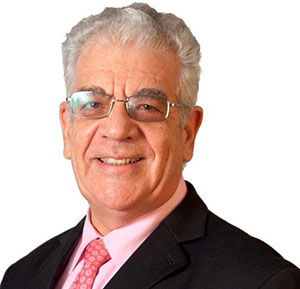 |
I personally welcome the move by PM Phuc to arrange this meeting so early in his term of office, which we see as very strong signal that the new government has a pro-business agenda, which we all welcome.
In terms of the business environment I think I speak for the British Business Group and I am sure most business groups, is the desire to see greater transparency and integrity in business, a matter raised directly by the British Prime Minister during his visit last year. Bureaucracy in the administrative agencies is still a major issue for many firms and the delays and resubmissions that are required because of lack of clarity, and differences in the requirements of different offices in different cities and provinces.
Putting on my tourism hat as chairman of the Tourism Working Group and vice chairman of the Tourism Advisory Board I would urge the government to take urgent action on the issue of granting visa exemption to an expanded list of countries, to urgently confirm the continued exemption beyond June this year for nationals from France, Germany, Italy, Spain and UK, and to extend the exemption from 15 days to 30 days. The positive impact of the visa exemptions to those five countries can already be seen with an average year on year increase of over 20 per cent in the first quarter of this year.
Hoang Kim Nga – Manager at Public Bank Vietnam
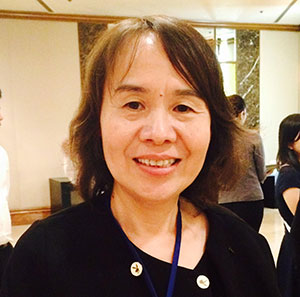 |
Over the past 30 years since doi moi, the Vietnamese government has made a lot of efforts to improve the business environment and welcome foreign investors. We’ve seen a steady stream of large names entering Vietnam, which include financial institutions from overseas. I hope the new government will continue to do this and integrate Vietnam further into the global market.
Specifically, over the years, the State Bank of Vietnam has released many timely regulations to keep the banking sector under control, which is applaudable. The banking sector has been able to overcome difficult times thanks to these assertive rules. I hope that the State Bank will launch even more progressive regulations in the future to both grow the financial sector while ensuring stability and control.
However, I also would like to see simplifications on the bureaucracy process and tax rules, since these can be a hindrance for many investors.
Last year was in fact a memorable year for Public Bank as we officially became a 100 per cent Malaysian bank in Vietnam, after acquiring all the stakes in a joint-venture called VID Public Bank. Our target customers are small-to-medium-sized companies in Vietnam and individual customers.
Michele D'Ercole – Chairman of the Italian Chamber of Commerce in Vietnam
 |
Regarding the theme "Vietnamese companies, drivers of growth", aims to realise the PM’s message that the Vietnamese government will create favourable conditions for start-up businesses and boost the development of enterprises in terms of both quantity and quality.
The Italian Chamber of Commerce in Vietnam welcome the priorities that new government has plan to fix shortcomings, uphold democracy and continue accelerating comprehensive renewal and international integration and contributing to fulfilling socio-economic development goals. These also include stabilising the macro-economy, promoting economic growth, reforming administrative procedures, encouraging start-ups, tapping creativity and talent, and rallying all possible resources for development.
Also will be important the role that the government will have to implement the Vietnam-EU Free Trade Agreement recently signed that will create business favourable conditions for the free market with no tariff barriers. The Italian companies aim to play a key role in such sectors as training education, quality and safe products, developing the supporting industries to help the Vietnamese market to improve the standards of their products and penetrate in the global market.
There are some areas where the government should put more effort to clarify the current environmental and food security/safety crises, facilitating foreign investment and trade, restructuring state-owned enterprises and the financial sector and also remove difficulties that foreign enterprises facing daily. Moreover, the government should improve the administrative procedures, specially in the customs and financial sectors.
Kim Thien Quang – General director of Maybank Kim Eng Securities
 |
The Vietnamese government has done a lot to support the growth of the Vietnamese stock market, such as raising the foreign ownership limit at Vietnamese listed firms, improving the standards of financial reports and information release. There are also a great list of decrees and circulars to guide intraday trading and the upcoming derivatives market.
Maybank Kim Eng strongly values the Vietnamese government’s ongoing efforts to attract both foreign direct and indirect investment to the country. Vietnam’s stable macro-economic situation is another bonus. Over the years, this has strengthened the image of Vietnam in the eyes of international investors, from what we’ve observed when working with large overseas funds.
With this in mind, we really hope to see even stronger efforts made by the new government to lure large institutional investors from overseas, as this will transform the Vietnamese stock market in terms of quantity and quality.
Specifically, Vietnam should have a higher credit rating by international rating agencies such as Moody’s and Fitch, as well as reaching the “emerging market” status set by MSCI. Rules regarding the foreign ownership limit at listed firms should also be elaborated to show the government’s commitment towards overseas investment.
We also suggest that the equitisation process of state-owned enterprises should be done more efficiently, with more shares offered to outside investors and more detailed information available.
Overall, with a new government, Maybank Kim Eng and our investors really hope to see a more competitive, transparent and stricter stock market in Vietnam that can be on par with regional exchanges.
Vo Quang-Hue - Managing director of Bosch Vietnam
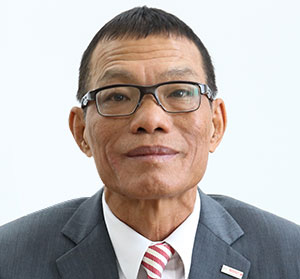 |
Vietnam has proved to be a potential market with the integration into the ASEAN Economic Community (AEC), concluding negotiations on the EU-Vietnam Free Trade Agreement (EVFTA) and the Trans-Pacific Partnership (TPP) in 2015. In order to have a clear and effective roadmap and timeline for implementation of the agreements, the new government should consider simplifying the administrative process, increasing the transparency of information, and creating consistent in implementation of the laws on Enterprises and Investment. The improvement will not only support current foreign companies but also build up an attractive framework for new investors.
For long-term sustainable development, Vietnam need to improve the selection criteria of investment projects, especially related to environmental protection. Projects which are using green and clean technology, utilising energy and resource efficient should be prioritised.
With technology that “invented for life”, Bosch is contributing to protect the natural environment for current and future generations by our innovative technologies in automotive aftermarket, drive and control technology, power tools, security systems, thermos-technology, packaging technology and automotive electronics.
Another issue which many companies encounter are counterfeit products and I hope the new government can take strong action regarding to this topic.
Vietnam has made many positive changes and improvements towards foreign investment policies. I did see a positive signal in the way new government was getting feedbacks and listening to the business community in the recent meeting with Prime Minister Nguyen Xuan Phuc.
| RELATED CONTENTS: | |
| Administrative reform first on companies’ list | |
| New PM tackles business barriers | |
| New PM to hold first talks with business community | |
What the stars mean:
★ Poor ★ ★ Promising ★★★ Good ★★★★ Very good ★★★★★ Exceptional
 Tag:
Tag:
Related Contents
Latest News
More News
- EU and Vietnam elevate relations to a comprehensive strategic partnership (January 29, 2026 | 15:22)
- Vietnam to lead trade growth in ASEAN (January 29, 2026 | 15:08)
- Japanese business outlook in Vietnam turns more optimistic (January 28, 2026 | 09:54)
- Foreign leaders extend congratulations to Party General Secretary To Lam (January 25, 2026 | 10:01)
- 14th National Party Congress wraps up with success (January 25, 2026 | 09:49)
- Congratulations from VFF Central Committee's int’l partners to 14th National Party Congress (January 25, 2026 | 09:46)
- 14th Party Central Committee unanimously elects To Lam as General Secretary (January 23, 2026 | 16:22)
- Worldwide congratulations underscore confidence in Vietnam’s 14th Party Congress (January 23, 2026 | 09:02)
- Political parties, organisations, int’l friends send congratulations to 14th National Party Congress (January 22, 2026 | 09:33)
- Press release on second working day of 14th National Party Congress (January 22, 2026 | 09:19)






















 Mobile Version
Mobile Version